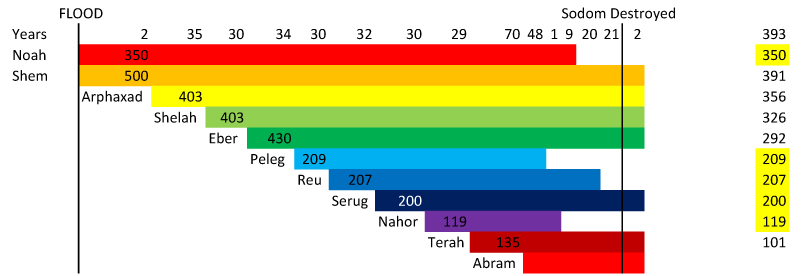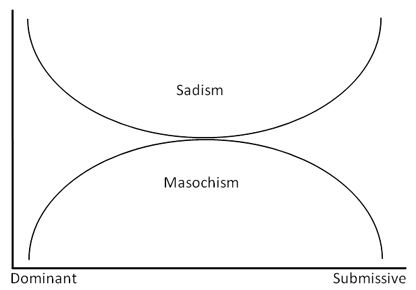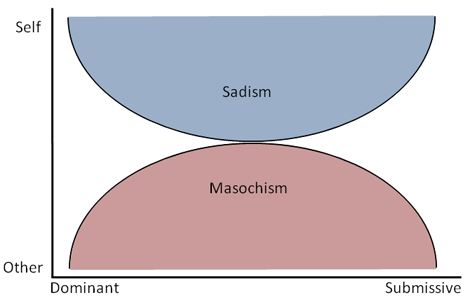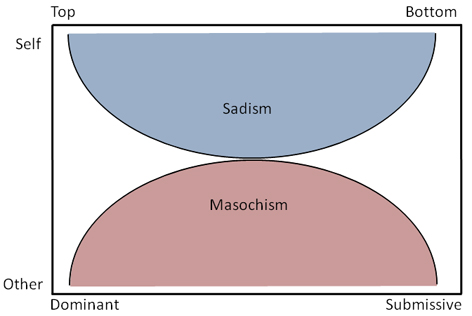Love must be without hypocrisy,[1] Paul continued. Actually, he wrote, Ἡ ἀγάπη ἀνυπόκριτος. Paul wrote a lot about ἀγάπη.[2] Love (ἀγάπη) does no wrong to a neighbor. Therefore love (ἀγάπη) is the fulfillment of the law.[3] What do you want? He asked the Corinthians. Shall I come to you with a rod of discipline or with love (ἀγάπῃ) and a spirit of gentleness?[4] He not only contrasted ἀγάπῃ to a rod of discipline but to knowledge: Knowledge puffs up (φυσιοῖ, a form of φυσιόω),[5] but love (ἀγάπη) builds up.[6]
Love (ἀγάπη) is patient, love (ἀγάπη) is kind, it is not envious. Love does not brag, it is not puffed up (φυσιοῦται, a form of φυσιόω). It is not rude, it is not self-serving, it is not easily angered or resentful. It is not glad about injustice, but rejoices in the truth. It bears all things, believes all things, hopes all things, endures (ὑπομένει, a form of ὑπομένω)[7] all things.[8] Love (ἀγάπη) never ends.[9] And now these three remain: faith, hope, and love (ἀγάπη). But the greatest of these is love (ἀγάπη).[10] Everything you do should be done in love (ἀγάπῃ).[11]
For the love (ἀγάπη) of Christ controls us, he continued to believers in Corinth, since we have concluded this, that Christ died for all; therefore all have died. And he died for all so that those who live should no longer live for themselves but for him who died for them and was raised.[12] One of the ways Paul and his associates commended themselves was by genuine love (2 Corinthians 6:3-10 NET):
We do not give anyone an occasion for taking an offense in anything, so that no fault may be found with our ministry. But as God’s servants, we have commended ourselves in every way, with great endurance, in persecutions, in difficulties, in distresses, in beatings, in imprisonments, in riots, in troubles, in sleepless nights, in hunger, by purity, by knowledge, by patience, by benevolence, by the Holy Spirit, by genuine (ἀνυποκρίτῳ, a form of ἀνυπόκριτος)[13] love (ἀγάπῃ), by truthful teaching, by the power of God, with weapons of righteousness both for the right hand and for the left, through glory and dishonor, through slander and praise; regarded as impostors, and yet true; as unknown, and yet well-known; as dying and yet – see! – we continue to live; as those who are scourged and yet not executed; as sorrowful, but always rejoicing, as poor, but making many rich, as having nothing, and yet possessing everything.
God’s love (ἀγάπη τοῦ θεοῦ) was part of Paul’s benediction to the Corinthians: The grace of the Lord Jesus Christ and the love of God (καὶ ἡ ἀγάπη τοῦ θεοῦ; literally, “and this love of God’s”) and the fellowship of the Holy Spirit be with you all.[14] God’s love comes to me as the fruit of his Spirit: the fruit (καρπὸς)[15] of the Spirit is love (ἀγάπη), joy (χαρὰ),[16] peace (εἰρήνη),[17] patience (μακροθυμία),[18] kindness, goodness, faithfulness (πίστις),[19] gentleness (πραΰτης),[20] and self-control. Against such things there is no law.[21] Blessed is the God and Father of our Lord Jesus Christ, who has blessed us with every spiritual blessing in the heavenly realms in Christ. For he chose us in Christ before the foundation of the world that we may be holy and unblemished in his sight in love (ἀγάπῃ).[22]
Paul prayed for the Ephesians that according to the wealth of his glory [the Father] may grant you to be strengthened with power through his Spirit in the inner person, that Christ may dwell in your hearts through faith (πίστεως, a form of πίστις), so that, because you have been rooted and grounded in love (ἀγάπῃ), you may be able to comprehend with all the saints what is the breadth and length and height and depth, and thus to know the love (ἀγάπην, a form of ἀγάπη) of Christ that surpasses knowledge, so that you may be filled up to all the fullness of God.[23] I, therefore, the prisoner for the Lord, urge you to live worthily of the calling with which you have been called, with all humility and gentleness (πραΰτητος, a form of πραΰτης), with patience (μακροθυμίας, a form of μακροθυμία), bearing with one another in love (ἀγάπῃ), making every effort to keep the unity of the Spirit in the bond of peace (εἰρήνης, a form of εἰρήνη).[24]
So we are no longer to be children, Paul concluded for the Ephesians, tossed back and forth by waves and carried about by every wind of teaching by the trickery of people who craftily carry out their deceitful schemes. But practicing the truth in love (ἀγάπῃ), we will in all things grow up into Christ, who is the head. From him the whole body grows, fitted and held together through every supporting ligament. As each one does its part, the body grows in love (ἀγάπῃ).[25] Therefore, be imitators of God as dearly loved (ἀγαπητὰ, a form of ἀγαπητός)[26] children and live in love (ἀγάπῃ), just as Christ also loved (ἠγάπησεν, a form of ἀγαπάω) us and gave himself for us, a sacrificial and fragrant offering to God.[27] Peace (Εἰρήνη) to the brothers and sisters, and love (ἀγάπη) with faith (πίστεως, a form of πίστις), from God the Father and the Lord Jesus Christ.[28]
And I pray this, Paul wrote the Philippians, that your love (ἀγάπη) may abound even more and more in knowledge and every kind of insight so that you can decide what is best, and thus be sincere and blameless for the day of Christ, filled with the fruit (καρπὸν, a form of καρπός) of righteousness [love, joy, peace, patience, kindness, goodness, faithfulness, gentleness, and self-control] that comes through Jesus Christ to the glory and praise of God.[29] My goal, he wrote the Colossians, is that their hearts, having been knit together in love (ἀγάπῃ), may be encouraged, and that they may have all the riches that assurance brings in their understanding of the knowledge of the mystery of God, namely, Christ, in whom are hidden all the treasures of wisdom and knowledge.[30]
To the church at Thessalonica Paul wrote: And may the Lord cause you to increase and abound in love (ἀγάπῃ) for one another and for all, just as we do for you, so that your hearts are strengthened in holiness to be blameless before our God and Father at the coming of our Lord Jesus with all his saints.[31] We ought to thank God always for you, brothers and sisters, and rightly so, because your faith (πίστις) flourishes more and more and the love (ἀγάπη) of each one of you all for one another is ever greater. As a result we ourselves boast about you in the churches of God for your perseverance and faith (πίστεως, a form of πίστις) in all the persecutions and afflictions you are enduring.[32]
But the aim of our instruction, Paul wrote Timothy, is love (ἀγάπη) that comes from a pure heart, a good conscience, and a sincere (ἀνυποκρίτου, a form of ἀνυπόκριτος) faith (πίστεως, a form of πίστις).[33] I recall your sincere (ἀνυποκρίτου, a form of ἀνυπόκριτος) faith (πίστεως, a form of πίστις) that was alive first in your grandmother Lois and in your mother Eunice, and I am sure is in you.[34] This sincere faith (πίστεως ἀνυποκρίτου, ἀνυποκρίτου πίστεως), as opposed to a hypocritical faith, comes from God in Christ through the fruit of the Holy Spirit, not from myself. This love without hypocrisy (Ἡ ἀγάπη ἀνυπόκριτος) shares the same origin, the same path and delivery method.
Let no one look down on you because you are young, Paul admonished Timothy, but set an example for the believers in your speech, conduct, love (ἀγάπῃ), faithfulness (πίστει, a form of πίστις), and purity.[35] Hold to the standard of sound (ὑγιαινόντων, a form of ὑγιαίνω)[36] words that you heard from me and do so with the faith (πίστει, a form of πίστις) and love (ἀγάπῃ) that are in Christ Jesus. Protect that good thing entrusted to you, through the Holy Spirit who lives within us.[37]
Jesus warned us what was coming: Then they will hand you over to be persecuted and will kill you. You will be hated by all the nations because of my name. Then many will be led into sin, and they will betray one another and hate one another. And many false prophets will appear and deceive many, and because lawlessness will increase so much, the love (ἀγάπη) of many will grow cold. But the person who endures (ὑπομείνας, a form of ὑπομένω) to the end will be saved.[38] This love without hypocrisy bears all things, believes all things, hopes all things, endures (ὑπομένει, a form of ὑπομένω) all things.[39]
Just as the Father has loved (ἠγάπησεν, a form of ἀγαπάω)[40] me, Jesus said, I have also loved (ἠγάπησα, another form of ἀγαπάω) you; remain in my love (ἀγάπῃ). If you obey my commandments (ἐντολάς, a form of ἐντολή),[41] you will remain in my love (ἀγάπῃ), just as I have obeyed my Father’s commandments (ἐντολάς, a form of ἐντολή) and remain in his love (ἀγάπῃ). I have told you these things so that my joy (χαρὰ) may be in you, and your joy (χαρὰ) may be complete. My commandment (ἐντολὴ) is this – to love (ἀγαπᾶτε, a form of ἀγαπάω) one another just as I have loved (ἠγάπησα, a form of ἀγαπάω) you.[42]
As I’ve written before it is axiomatic to me that the way Jesus loved us was through that same love He received from the Holy Spirit that descended like a dove from heaven, and…remained on him.[43] He prayed as much to his Father if one has ears to hear: I made known your name to them, and I will continue to make it known, so that the love (ἀγάπη) you have loved (ἠγάπησας, a form of ἀγαπάω) me with may be in them, and I may be in them.[44]
Writing to the Corinthians about giving, Paul mentioned something about ἀγάπῃ which troubled the NET translators: But as you excel in everything – in faith (πίστει, a form of πίστις), in speech, in knowledge, and in all eagerness and in the love (ἀγάπῃ) from us that is in you – make sure that you excel in this act of kindness too.[45] The note in the NET reads:
“The reading ‘the love from us that is in you’ is very difficult in this context, for Paul is here enumerating the Corinthians’ attributes: How is it possible for them to excel ‘in the love from us that is in you’? Most likely, because of this difficulty, several early scribes, as well as most later ones…altered the text to read “your love for us” (so NIV; Grk ἐξ ὑμῶν ἐν ἡμῖν ἀγάπῃ). The reading ἐξ ἡμῶν ἐν ὑμῖν ἀγάπῃ is found, however, in excellent and early witnesses….As the harder reading it explains the rise of the other reading. What, then, is the force of ‘in the love from us that is in you’? Most likely, Paul is commending the Corinthians for excelling in deriving some inspiration from the apostles’ love for them.”
Now, I don’t think Paul was suddenly taking credit for the fruit of the Spirit—the love from us that is in you. I believe he meant the love from God that he taught them. You, however, have followed my teaching, he wrote Timothy, my way of life, my purpose, my faith (πίστει, a form of πίστις), my patience (μακροθυμίᾳ), my love (ἀγάπῃ), my endurance, as well as the persecutions and sufferings that happened to me in Antioch, in Iconium, and in Lystra.[46] It seems to me a more literal translation of the Greek here would have been: “You, however, have followed [this] teaching [of mine], [this] way of life, [this] purpose, [this] faith, [this] patience, [this] love, [this] endurance…” And this love from Paul’s teaching was in them because they believed.
And that is the key for us, too. Now without faith (πίστεως, a form of πίστις) it is impossible to please him, for the one who approaches God must believe that he exists…[47] To come to know and to believe the love (ἀγάπην, a form of ἀγάπη) that God has in us[48] we must first believe that it is there for us. It’s a little like learning to float. I had to learn to trust the water, that it would bear me up. And I had to reject the testimony of those who claimed otherwise.
[48] 1 John 4:16a (NET) Table






